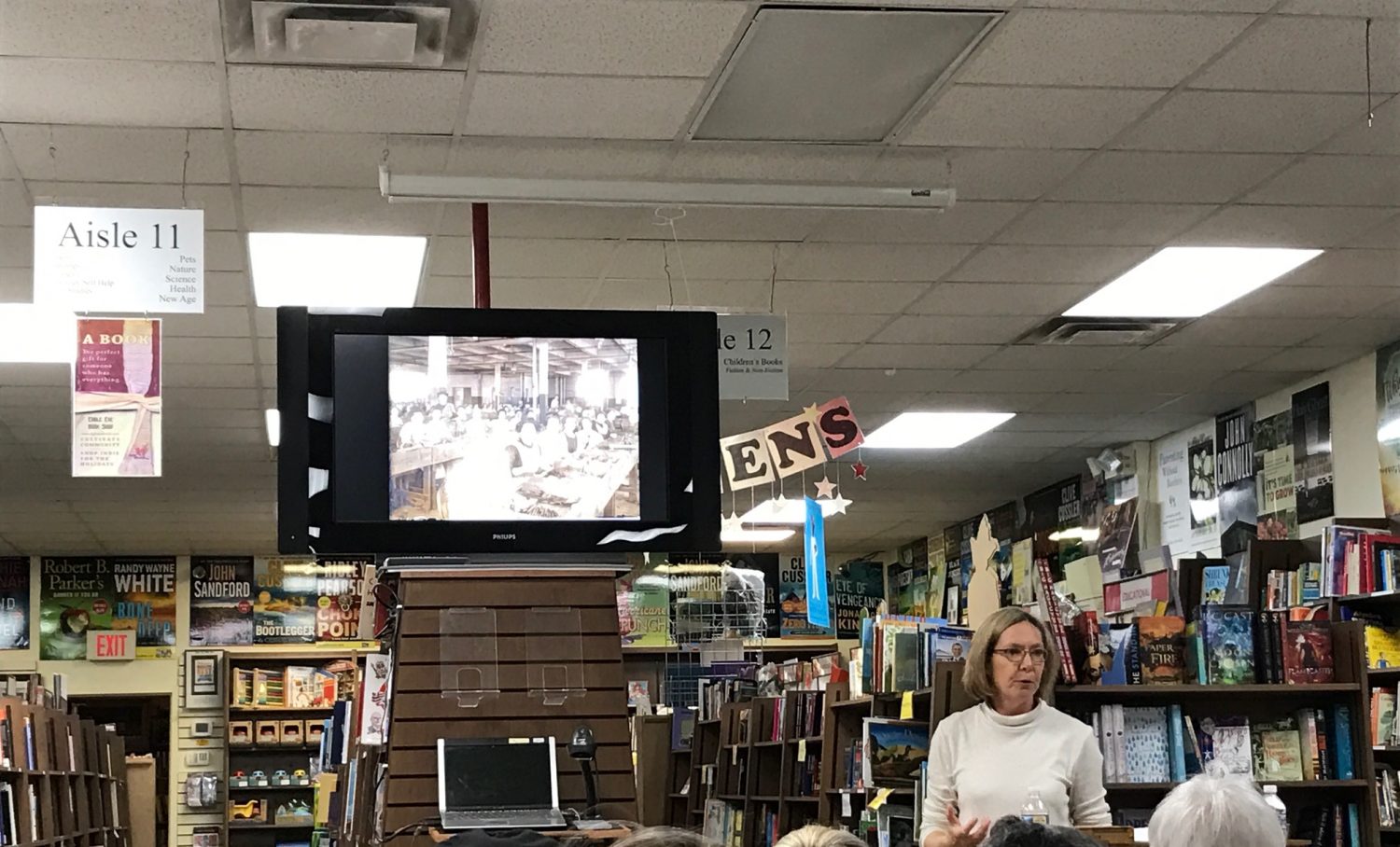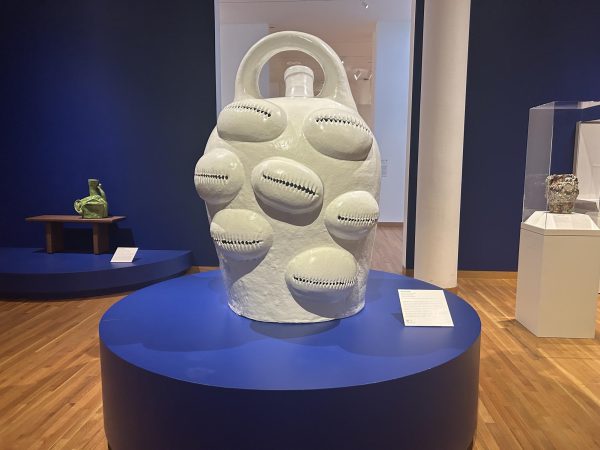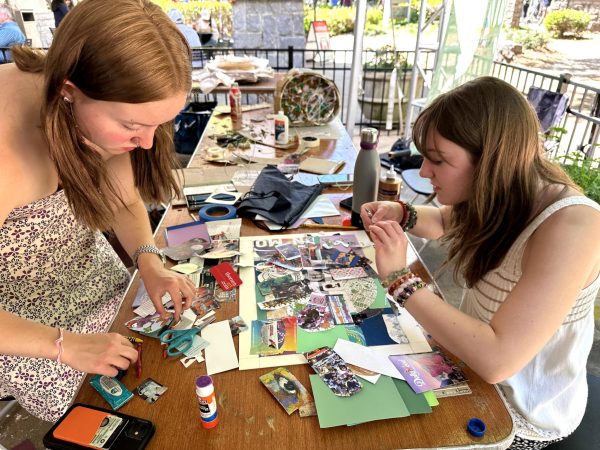Grady alum wins prestigious book award
March 22, 2017
By Olivia Podber, Co-Editor-in-Chief
Full of reflective description and accurate dialogue of the early 20th century in Charleston, South Carolina, 1978 Grady alumna Michele Moore’s debut novel, “The Cigar Factory: A Novel of Charleston,” won the 2016 David J. Langum, Sr. Prize in American Historical Fiction.
“It is a wonderful validation,” Moore said of the recognition. “I think I can finally say, ‘I am a writer.’”
“The Cigar Factory” tells the story of two working class Catholic women, one African American and one Irish American, in Charleston from 1893 to 1946, who work on segregated floors of the same cigar factory. Their paths cross for a brief, yet historical moment during a time when society was determined to keep them apart.
The Langum Prize acknowledges one winner each year for a historical fiction book that rated the best in “excellent fiction and excellent history.”
“I think two things about Michele Moore’s ‘The Cigar Factory’ caused it to appeal to us,” said David J. Langum, Sr., the director of The Langum Charitable Trust.
“First, the themes and location were fresh. Not much historical fiction, if any ever, has been focused on the cigar factory in Charleston,’’ Langum continued. “Second, the book was very well-written, particularly the use of dialect. Using regional dialect in fiction is very tricky for writers … it can be so dense as to be unreadable. Moore solved these problems by using Gullah dialect selectively and in brief snippets.”
Dick Latham, an actor who participated in a live reading of “The Cigar Factory” in Charleston, thinks the significance of the book is in the complexity of its story.
“How two seemingly different people from different cultures or races can have so much in common and not really know it and work together to bring change [makes the book important],” Latham said.
Moore credits becoming an author with a drama class she took at Grady.
“Had I not been able to get into Mr. Moate’s drama class [at Grady], well, I really can’t imagine when or how I would have ‘gone through the door’ of all that the world of literature has to offer,” Moore said.
Although she grew up in Atlanta, Moore conceived the idea for “The Cigar Factory” by collecting the stories her father told her about his family’s history working at the cigar factory.
“Because of my father’s side of my family coming from Charleston, I grew up hearing all these wonderful stories about the culture,” Moore said. “Hearing those great anecdotes about what life was like in the 20’s and 30’s in Charleston, I stored all them in my memory bank.”
It was not until many years, schools and jobs later, after discovering more about the history of the American Tobacco Company Cigar Factory and its strike in 1945, that Moore decided to put pen to paper and write the book.
“When I began the research [for the book] in 2008, I found that the large tobacco companies set about hiring only women so that they could pay them less than men, and at the time, women couldn’t join the Cigar Makers’ Union,” Moore said. “Also, management made the statement that they wanted ‘a dumb and docile workforce,’ so I felt challenged to provide strong characters who were anything but.”
The cigar factory strike in 1945 was a result of unionized workers pushing for social justice, including the legal right to join a union, shorter hours and better pay. Moore decided to center “The Cigar Factory” around the worker’s strike to understand the catalyst for the event.
“It was incredibly risky for people to walk off their jobs, particularly during that time period when it was seen as unpatriotic,” Moore said. “That got me thinking in terms of ‘what would make those women take that chance?’”
Pat Conroy, acclaimed author and editor-at-large, wrote the foreword for “The Cigar Factory,” saying, “It is a courageous book that takes chances with language that I wouldn’t think of taking; but I will always be grateful that Michele Moore took as her ambitious objective to tell a story in which the truth of language and the truth of lives hold equal sway.”
The language that Moore utilizes throughout the book is part of the Gullah Geechee dialect, and Moore’s implementation of it is a nod to the African cultures to which many in South Carolina share family ties.
“Gullah refers to the culture and language traditions of West Africa which have been retained by the descendants of those enslaved on the Sea Islands of Florida, Georgia, South Carolina, North Carolina,” Moore said. “These language traits vary in intensity and consistency, but they are present to this day, though it is disappearing.”
Moore wrote a script version of “The Cigar Factory” and in the summer of 2016, she and the actors she casted were invited to perform at the Charleston Piccolo Spoleto Festival, highlighting the music and language aspects of the book. The performance was a ‘surprise hit’ in Moore’s words, and she received interest in adapting the entire book for the stage.
“To me, ‘The Cigar Factory’ is a work that is extremely important, especially in our present political scene in which many people are in denial of our racial history as well as current problem,” said Bill Paxton, one of the actors in the “Sounds of the Cigar Factory” performance. “Being from the South, I consider it a viable counterpart to the revised history that was taught when I was growing up.”














